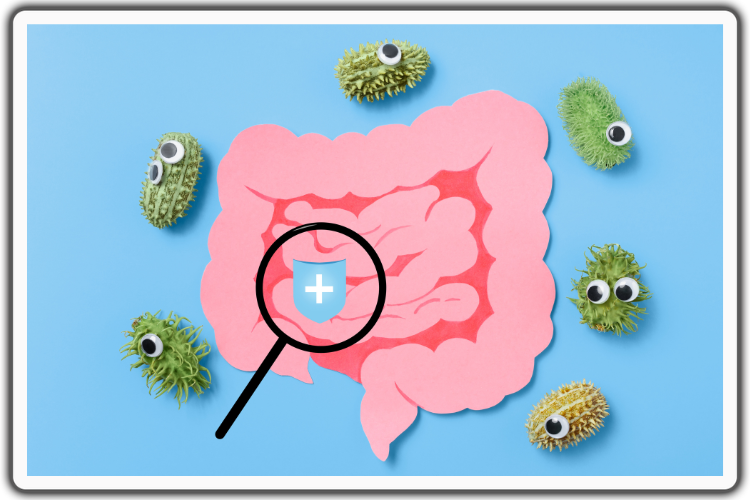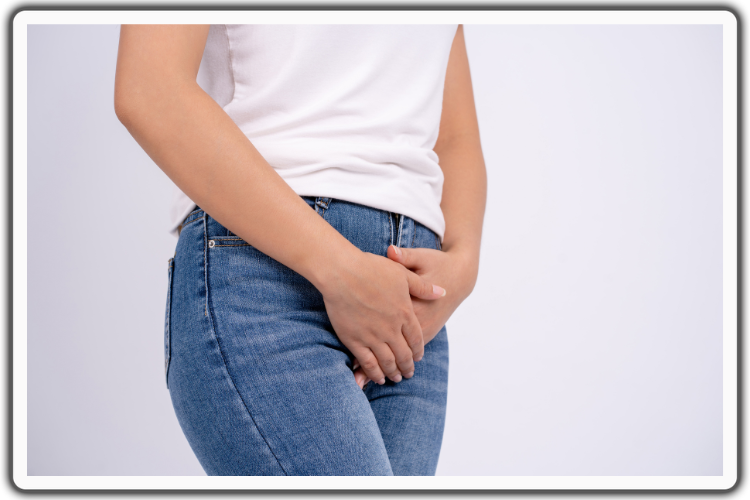
5 Extraordinary Probiotic Benefits For Women
Probiotics have become increasingly popular for their numerous health benefits. Incorporating probiotic-rich foods and supplementation into the daily diet can make a remarkable difference in women's health. The extraordinary benefits of probiotics can empower women to take control of their well-being and lead vibrant, fulfilling lives. So why wait? Keep reading and know more about probiotic benefits for women.
Understanding the Microbiome
The human body is teeming with trillions of microorganisms, forming a community called the microbiome.
These microorganisms, including bacteria, fungi, and viruses, reside in various parts of the body, such as the gut, skin, and vagina. The microbiome has a crucial role in maintaining overall health and well-being. When the balance of microorganisms in the body is disrupted, it can lead to various health issues. That's where probiotics come in.
Probiotics are live bacteria and yeasts essential to our health, especially when consumed in the right amounts. They help repair and maintain the natural balance of microorganisms in the body, promoting optimal health. By understanding the importance of the microbiome and the role probiotics play in supporting it, women can harness the extraordinary benefits of probiotics for their overall well-being.
The good bacteria in our system explains like this:
Imagine You Have a Garden…

In this garden, there is a whole ecosystem of different plants, bugs, and animals. Each element plays a role in keeping the garden healthy and balanced.
Now, think of your body as a garden, but instead of plants and bugs, you have trillions of tiny organisms called microbes living inside you. These microbes, like bacteria, fungi, and viruses, make up what we call the microbiome.
Like in a garden, having a diverse and balanced microbiome is important for keeping your body healthy. These tiny organisms help digest your food, keep your immune system strong, and even influence your mood and energy levels.
However, sometimes, things can get out of balance. Just like a garden can get overrun by weeds or pests, your microbiome can become unbalanced, leading to problems like upset stomachs, weak immune systems, or even mood swings.
So, taking care of your microbiome is like taking care of your garden. You want to feed it the right nutrients (like fiber-rich foods), avoid things that can throw it off balance (like antibiotics), and sometimes give it a little extra help (like probiotics).
By understanding and looking after your microbiome, you can help keep your body running smoothly, just like tending to a healthy garden.
Clinical Studies on Probiotics

Several clinical studies have studied the potential probiotic health benefits for women. Here are summaries of some key studies:
- According to the study of probiotics with Lactobacillus strains [¹] are beneficial to health and work towards eliminating female gynecological disorders such as vaginal infections, PCOS, and endometriosis.
-In the review study of published in Frontiers’ Cellular and Infection Microbiology, they mentioned that probiotics help keep the vagina healthy [²], fight gynecological problems, and strengthen the vagina's defense system. It was also stated that these are beneficial in slowing down certain cervical conditions, treating vaginal infections, and lessening menopause-related vaginal symptoms.
Study on probiotics and prebiotics [³] has been extensively studied for their health benefit for. According to their investigation, these show promise in treating various conditions like irritable bowel syndrome, urinary tract infection, and colds. While naturally found in certain foods, supplements can boost their intake.
These may also help manage metabolic issues like obesity and diabetes and protect against cardiovascular diseases by reducing cholesterol, alleviating oxidative stress, and supporting gut and immune health.
This scientific evidence suggests that probiotic may offer health benefits for women. However, further research is needed to address their limitations.
How Probiotics Benefit Women's Health
Probiotics offer a wide range of beneficial effects for women health. From supporting digestive health to promoting vaginal health, immune support, skin health, and even mental well-being, probiotics have a profound impact on various aspects of women's health. Let's explore each of these probiotic benefits for women in detail.
1. Probiotics for Digestive Health

Probiotics and yeast are beneficial bacteria [⁴] that are good for your digestive system. They're like friendly helpers that can improve your gut health by maintaining a thriving gut microbiome in your intestines.
Probiotics can be found in supplement form and fermented foods. Probiotics help your gut bacteria stay balanced, promoting digestive health and overall gut health.
Some people take probiotics to help with bloating, diarrhea, and other digestive problems. However, it's important to choose the right probiotic strains, especially if you have any concerns about your digestive health.
2. Probiotics for Vaginal Health

Probiotics support vaginal and urogenital health by maintaining the natural balance of microorganisms in these areas. This balance is crucial to prevent infections and support urogenital health. There are probiotics specifically formulated for vaginal health, available as oral supplements or vaginal suppositories.
You can find probiotics specifically formulated for vaginal health in various forms, such as oral supplements or vaginal suppositories [⁵]. When taken regularly, these probiotics help replenish and maintain the healthy bacteria in the vagina, which can reduce the risk of conditions like urogenital infections, bacterial vaginosis, and urinary tract infections, decreasing the tendency of having pelvic inflammatory disease, infertility, ectopic pregnancy, premature labor, chronic pain, low birth weight babies, sexually transmitted infections (STIs), and increased vulnerability to human immunodeficiency virus (HIV).
In addition to taking probiotic supplements, maintaining good hygiene practices and avoiding irritants can further support vaginal health. It's essential to choose probiotic products specifically designed for vaginal health.
3. Probiotics for Immune Support

According to the National Institutes of Health, probiotics can also be helpful for supporting the immune system [⁶]. Supporting a balanced gut microbiome, these beneficial bacteria play an important role in immune function.
Promoting good gut flora, probiotics can help strengthen the body's natural defenses against harmful pathogens and infections. They also support the production of certain immune cells and enhance the gut barrier function, which further boosts immune resilience.
Probiotics can be found in various forms, including food sources like yogurt, kefir, and fermented vegetables and supplements. Incorporating foods high in probiotic or supplements into your diet can help support immune health, especially during increased susceptibility to illness or stress.
While probiotics are considered a potential contributor to your immune support regimen, it's essential to choose products with strains that have been studied for their immune-boosting effects.
4. Probiotics for Skin Health

Probiotics can also benefit skin health [⁷]. These beneficial bacteria support in maintaining a healthy balance of microbes on the skin, which prevents issues like acne, eczema, and other skin conditions.
Probiotics can be found in skincare products like lotions, creams, and serums, as well as in supplements taken orally. When applied topically or ingested, probiotics can help promote a healthy skin microbiome, which may lead to clearer, more radiant skin.
Probiotics work by supporting the skin's natural defenses, supporting the growth of beneficial bacteria and decreasing inflammation that keep harmful microbes in check. While more research is needed, many people find that incorporating probiotics into their consistent skincare routine can promote healthier, more radiant skin.
It's essential to choose skincare products containing probiotics that are specifically formulated for skin health.
5. Probiotics for Mental Health

Our gut bacteria, including probiotics, might contribute to mental well-being by influencing the communication between the gut and the brain, which can influence brain function and mood.
Research suggests that the gut microbiome [⁸] communicates with the brain through the gut-brain axis, affecting neurotransmitter production and inflammation levels. By promoting a balanced gut microbiome, probiotics may help support mental well-being and reduce symptoms like depression, anxiety, and stress.
While more research is needed to understand the relationship between probiotics and mental health, many people report feeling better emotionally and mentally when regularly consuming probiotics.
It's essential to choose probiotic products with strains that have been studied for their potential mental health benefits for women.
Who Needs Probiotics?
Probiotics may be helpful for individuals with specific health conditions, including:
1. Gastrointestinal infections:
Probiotics can help prevent and even reduce the severity of gastrointestinal infections caused by pathogens such as Clostridium difficile (C. difficile), Salmonella, or rotavirus. They may shorten the duration of diarrhea and alleviate symptoms associated with infectious gastroenteritis.
Probiotics have shown guarantee in managing symptoms of IBS, including abdominal discomfort, bloating, diarrhea, and constipation. Certain strains of probiotics may help regulate bowel movements and improve overall digestive comfort in individuals with IBS.
3. Allergic conditions:
Probiotics may help in preventing or managing allergic conditions such as food allergies, allergic rhinitis (hay fever), or atopic dermatitis (eczema). They can influence the immune response and promote immune tolerance, potentially reducing the severity of allergic reactions.
4. Inflammatory conditions:
Probiotics may help manage inflammatory conditions such as rheumatoid arthritis, psoriasis, or allergic asthma by modulating inflammation and immune responses. While more research is needed, some studies suggest that probiotics may have anti-inflammatory effects in certain inflammatory diseases.
5. Oral health:
Probiotics can fight off harmful bacteria in the mouth, lowering your chances of cavities, gum inflammation (gingivitis), and gum disease (periodontal disease). They may also help freshen your breath and promote overall oral hygiene.
6. Women's health:
Probiotics may benefit women's health by preventing or managing conditions such as urinary tract infections (UTIs), bacterial vaginosis, or yeast infections. They help keep a healthy balance of bacteria in the urinary and vaginal tracts, reducing the risk of infections and promoting vaginal and urinary tract health.
While research continues to uncover their therapeutic potential, it's important to choose probiotic strains and formulations that are appropriate for your specific health concerns.
Choosing the Right Probiotic Supplement
When choosing the right probiotic supplement, it's crucial to ask questions to ensure the product meets your health needs and expectations. Here are some key questions to consider:
What health benefits am I seeking from a probiotic?
Understand the specific benefits you want, such as improving gut health, boosting immunity, or addressing a particular health issue. This helps narrow the choice of products with effective strains for those specific needs.
Which probiotic strains does the supplement contain?
Different strains offer different benefits. Research or consult a healthcare provider to determine which strains are best for your health goals.
Does the supplement have storage requirements?
Determine if the probiotic needs refrigeration or if it is shelf-stable, and ensure that you can comply with these storage conditions.
Is the probiotic supplement third-party tested?
Since probiotics are live organisms, their potency can diminish over time. Look for the expiration date to ensure you're getting a product that's likely to be effective.
Are there any potential interactions with the medications I am taking?
Seek guidance from a medical professional to understand if the probiotic could interact with your medications or health conditions.
What is the company's reputation?
Look into the brand's reputation and the research backing its products. Well-established brands with a commitment to quality are often more reliable.
How does the company ensure the viability of the probiotics through to the end of shelf life?
Understand the company's practices for ensuring the probiotics remain effective throughout their shelf life, not just during manufacturing.
Are there any additives or allergens in the supplement that I should be aware of?
Check for any additional ingredients that could be harmful or trigger allergies.
By asking these questions, you can decide which probiotic supplement is the best fit for your health needs and lifestyle.
Conclusion
The extraordinary health benefits of probiotic for women are undeniable. From supporting digestive health to promoting vaginal health, immune support, skin health, and mental well-being, probiotics offer a holistic approach to well-being. Recognizing the role of the microbiome in our health and choosing the right probiotic supplement, women can harness the power of probiotics and make a remarkable difference in their quality of life. So why wait? Start introducing probiotics into your diet and experience the extraordinary benefits for yourself.
References
- Almeida, C.V.D., Antiga, E., & Lulli, M. (2023). Oral and Topical Probiotics and Postbiotics in Skincare and Dermatological Therapy: A Concise Review. https://doi.org/10.3390/microorganisms11061420
- Centers For Disease Control and Prevention (2021). Bacterial Vaginosis. Sexually Transmitted Infections Treatment Guidelines, 2021. https://www.cdc.gov/std/treatment-guidelines/bv.htm
- Mei, Z., & Lin, D. (2022). The role of probiotics in vaginal health. Frontiers in Cellular and Infection Microbiology (12). https://www.frontiersin.org/articles/10.3389/fcimb.2022.963868/full
- Mohajeri, M.H., Fata, G.L., & Weber P. (2018). Relationship between the gut microbiome and brain function. Nutrition Reviews 76(7), pp. 481–496. https://doi.org/10.1093/nutrit/nuy009
- National Institutes of Health (2023). Probiotics. Strengthening Knowledge and Understanding of Dietary Supplements. https://ods.od.nih.gov/factsheets/Probiotics-HealthProfessional/
- Norfuad, F.A., Mokhtar, M.H., & Azurah, A.G.N (2023). Beneficial Effects of Probiotics on Benign Gynaecological Disorders: A Review. Nutrients 2023, 15(12), pp 2733; https://doi.org/10.3390/nu15122733
- Pavlidou, E., Fasoulas, A., Mantzorou, M., & Giaginis, C. (2022). Clinical Evidence on the Potential Beneficial Effects of Probiotics and Prebiotics in Cardiovascular Disease. Int. J. Mol. Sci. 2022, 23(24), pp. 15898. https://doi.org/10.3390/ijms232415898
- Wang & Shurtleff (2019). Probiotics: What You Need To Know. National Center of Complementary and Integrative Health. https://www.nccih.nih.gov/health/probiotics-what-you-need-to-know
